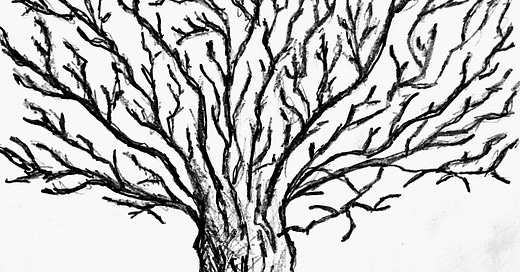Hello friend,
It’s been over a year since I moved to a new country.
I don’t work for a local company. I don’t have many local friends. I still don’t speak the local language.
And yet, I already feel like I belong.
A Story: It's a hard job to belong
I was sitting at a dinner table, listening to friends chatting in a language I barely understood. I caught a few words here and there, but couldn’t follow the conversation. Nevertheless, I stayed fully present, tuning into body language, facial expressions, tone, and rhythm of the space around me.
From time to time, someone would turn to me, smile, and offer a few lines in English before returning to Spanish.
Later, I shared the experience with a friend, also an expat. She looked into my eyes, visibly moved.
“That must have been so painful,” she said. “I remember when I first moved here and couldn’t speak Spanish… I felt so ashamed and excluded. I’ll never forget that.”
I paused.
“Actually, not at all,” I said. “I felt… welcomed.”
That moment stayed with me. Why didn’t I feel excluded, too? What was different?
I’ve lived in many places - China, Taiwan, India, Spain - and though each had its challenges, I’ve always had to find my way toward a sense of stability and belonging. There wasn’t a roadmap.
Of course, some places feel more like home than others. But looking back, I’ve realised how much my experience was shaped by internal factors: how much I wanted to belong, how I perceived myself, how I interpreted the cues of others.
Belonging begins not when others give us space, but when we first make space for ourselves.
That evening, I came with an open heart. I wasn’t expecting full inclusion. I brought curiosity and care. I didn’t shut down at the first moment of rupture. I stayed open, and a sense of connection met me there.
A Thought: We can cultivate our roots in different ways
Transitions - whether moving countries, changing jobs, or ending relationships - can shake our roots. Suddenly, the familiar is gone, and you’re floating without something to anchor you.
It’s unsettling. Vulnerable. Sometimes even scary.
Here’s the often-missed truth: The sense of stability isn’t always external.
Yes, there are ways we try to create outer safety - meeting people from our culture, speaking our native language, participating in known activities, creating a routine that increases the sense of familiarity. And these can help. But they don’t always resolve the deeper sense of disconnection.
We often overestimate the power of our environment and underestimate the quiet strength of our inner world.
As humans, our nervous system is constantly scanning the world for cues of safety or threat. According to Polyvagal Theory (Dr. Stephen Porges), this unconscious process, called neuroception, governs how our body responds to connection or danger.
When we’ve experienced trauma, this “scanning system” can become overactive, misreading neutral cues as unsafe. But the good news is: this can change.
We can learn to regulate our nervous system and consciously cultivate inner safety.
Research shows that when we recall grounded, safe, or connected experiences, our nervous system responds as if we’re experiencing them now. This is sometimes referred to as internal resource anchoring - the process of connecting to inner experiences that provide steadiness, safety, and self-trust.
Our internal state, a steady breath, an open heart, and a sense of connection shape how safe we feel in the world. Even if we don’t speak the language or know the rules, we can feel “I’m okay here.” And science shows this deepens trust and opens our nervous system to creativity, resilience, and connection.
You don’t always need roots in the ground - you need roots in your body.
A Practice: Finding your grounding
Here’s a gentle journaling and somatic practice I often use with clients to help reconnect with their internal stability, especially when the outside feels unfamiliar.
✨ You’ll find it attached as a downloadable worksheet.
Take your time. Go slowly. Enjoy.
Thank you for reading.
Wherever you are, may you feel a little more rooted today.
With warmth,





